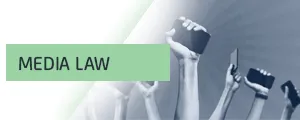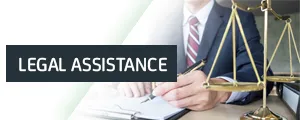Imposing censorship by a judge is unacceptable. "Adil Soz" legal review

"Adil Soz” Foundation has prepared this legal review on the situation faced by Orda.kz while covering the litigation between Bolat Nazarbayev and Almaty Steklo LLP. Orda.kz was the only media outlet covering this case, but the court forbade it from writing about the litigation. Meanwhile, the plaintiff was allowed to give interviews to the media. According to the current legislation of the Republic of Kazakhstan, a judge must be guided not only by personal convictions but, above all, by the letter of the law. The Constitution of the Republic of Kazakhstan explicitly prohibits censorship.
Case of Orda.kz
Orda.kz was prohibited from publishing the information voiced during the court hearings of the case of Bolat Nazarbayev against Almaty Steklo LLP until a court decision is annonced.
The trial is taking place in the Specialized Interdistrict Economic Court of the Almaty region. Representatives of Bolat Nazarbayev asked the court to prohibit the journalist and the defendant from publishing information in the media to prevent a false opinion among the public.
The judge partially granted the petition: Orda.kz was banned from publishing information, while the defendant was allowed to give interviews in the media.
Analysis of the situation
In accordance with Article 20 of the Constitution, everyone has the right to freely receive and disseminate information, and censorship is prohibited. According to Article 20 of the Mass Media Law, journalists have the right to receive and disseminate information.
In accordance with Article 25 of the Constitutional Law "On the Judiciary and the Status of Judges of the Republic of Kazakhstan," judges are independent and subject only to the Constitution of the Republic of Kazakhstan and the law. According to Article 6 of the Code of Civil
Procedure, the court, when considering and resolving civil cases, is obliged to strictly comply with the requirements of the Constitution of the Republic of Kazakhstan, the constitutional laws of the Republic of Kazakhstan, this Code, and other regulatory legal acts, subject to the application of international treaties of the Republic of Kazakhstan.
When considering civil cases in open court, the court does not have the right to prohibit journalists from disseminating information that they received during an open trial. A prohibition by an official on the dissemination of open information is censorship. It is important to note that the court prohibited journalists from disseminating information at the request and in the interests of the plaintiff (Bolat Nazarbayev) in order to influence public opinion by prohibiting the public from receiving open information and the perspective of a particular mass media outlet.
In accordance with Article 2 of the Code of Judicial Ethics, the legality and validity of procedural decisions taken by a judge must be ensured regardless of any public discussion or assessment of their activities. This norm implies that a judge does not have the right to prohibit the public from discussing public trials and evaluating the actions of a judge, but must perform their duties irrespective of external judgments. Thus, the judge obviously violated the norms of the Constitution, laws, and the Code of Judicial Ethics. Moreover, the judge's actions show signs of a criminal offense under Part 2 of Article 158 of the Criminal Code of the Republic of Kazakhstan (Interfering with the legitimate professional activities of a journalist using official position). According to Article 180 of the Code of Criminal Procedure, media reports are sufficient grounds for initiating a pre-trial investigation.
"Adil Soz" recommends:
"Adil Soz” Foundation believes that the judge's ban on covering the open trial should be considered illegal and revoked. Considering that the judge's actions show signs of a criminal offense as provided for in Part 2 of Article 158 of the Criminal Code of the Republic of Kazakhstan ("interfering with the legal professional activities of a journalist using official position"), it is necessary to initiate a pre-trial investigation.





